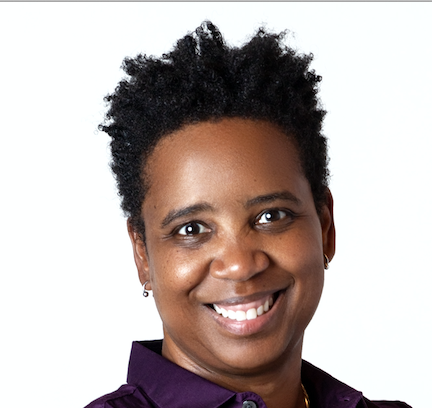40% of adults would have trouble covering an unexpected expense worth $400, and 60% would have difficulty covering an unexpected expense of $1000. Instead of using savings, people use credit cards for emergencies which can quickly become problematic when considering compound interest rates from a credit card balance that is not paid in full when it’s due.
Many of us are familiar with the weight on our chests, the tension in our necks and shoulders, and the sleepless nights that are connected to fears of how we will pay upcoming bills when we will be able to schedule a much needed medical appointment, and wondering when the refrigerator will be filled again. Alternatively, we are less familiar with adopting habits that lighten that weight and tension in our bodies and leave us sleeping deeply and restfully at night.
Financial Coach and owner of Bank On It Financial Coaching, Terry Banks’ road to financial literacy began with saving to buy a motorcycle, then unexpectedly having her savings become the money she used to support herself after being laid off from her job (don’t worry, she still got the motorcycle at a later time). She described this as her introduction to understanding the significance of an emergency fund and its influence on many areas of our lives, namely our health. She believes that having an emergency fund is the foundation of wealth. Below are a few takeaways she shared with us about the importance of having an emergency fund.
3 Reasons to Have an Emergency Fund:
- Career: Oftentimes people will remain in jobs that they do not like, that are wearing on their spirit and joy, simply because of the very real need to pay bills and care for their families. However, when we make setting aside money a habit, the savings we accumulate can provide us with some flexibility when it comes to our employment options (e.g. starting your own business or taking more time to find a position that is a good fit as opposed to taking the first opportunity that is presented).
- Relationships: Some people may stay in unhealthy or unwanted relationships because it lessens their financial burden, especially couples who live together. Committing to establishing an emergency fund allows us to learn about our spending habits and practice healthy ways to spend that are aligned with what we want in our lives, including the autonomy to choose relationships we want.
- Legacy/Generational Wealth: Many people are operating in survival mode daily, and when in survival mode, there is little room to think ahead and plan for later generations. Terry explained that “To leave a legacy, you have to understand the time element of money.” For example, after building an emergency fund, the same habits that created the emergency fund can create a down payment on a house. That house can then be passed on in a person’s family. That roof becomes more than protection from the elements. Homeownership offsets rising rents and once the mortgage is paid off the owners only have to focus on the cost of maintenance and property taxes. Going a step further, the equity from that family home can be used for things like down payments for the homes of future generations, tuition, and home improvement projects. Depending on the savviness of the homeowner, that equity can also be used for investments like business start-up funds, real estate, and stocks.
When you are not born into a life that is surrounded by financial wealth, you must create your own cushion through learning, practicing, and engaging in conversations that support health in this regard. It can understandably be overwhelming at first, but it does not have to be daunting. Develop your habit of saving by putting a bit aside at a time, then, notice the influence this has on how you approach life. Consider how this flows with other areas of your life and ways that you care for yourself and your loved ones.

Terry Banks is a Financial Coach who specializes in guiding professionals, singles and couples, who feel frustrated with living paycheck to paycheck so that they can achieve financial security. She started Bank On It Financial Coaching to help others conquer their money fears and tap into their dreams. Her hobbies are gardening, investing and savoring tequila.

Featured Image: Photo by Pixabay




